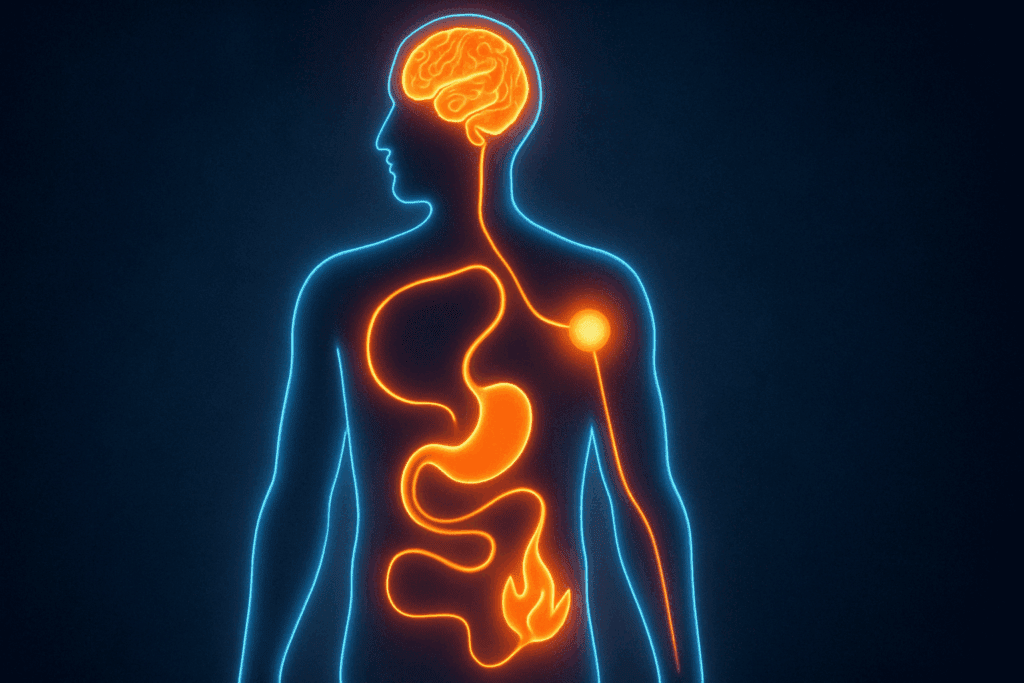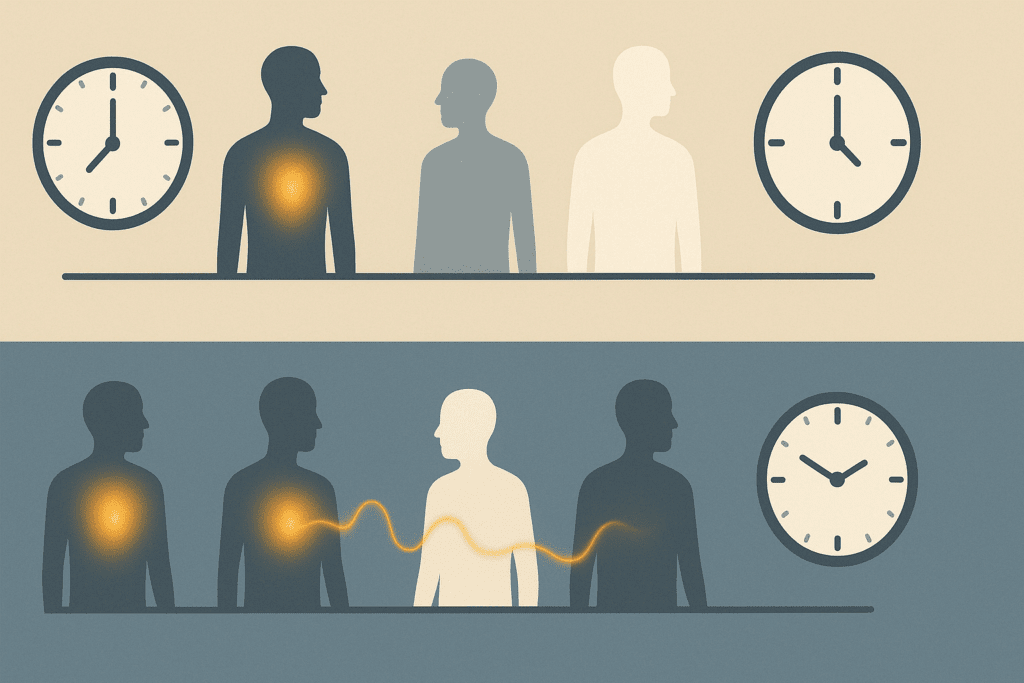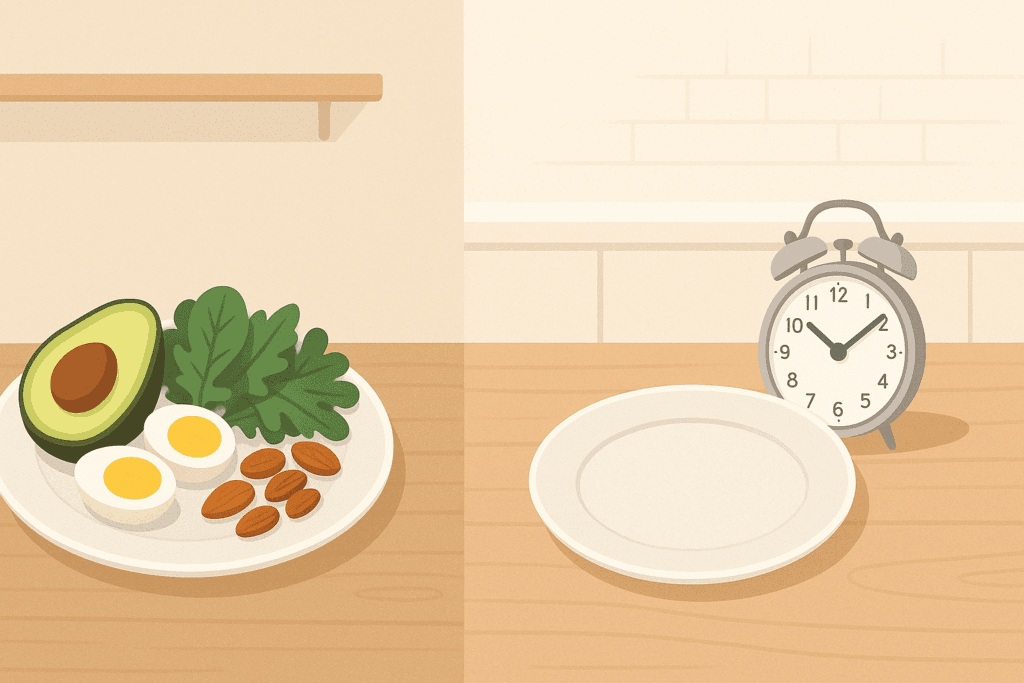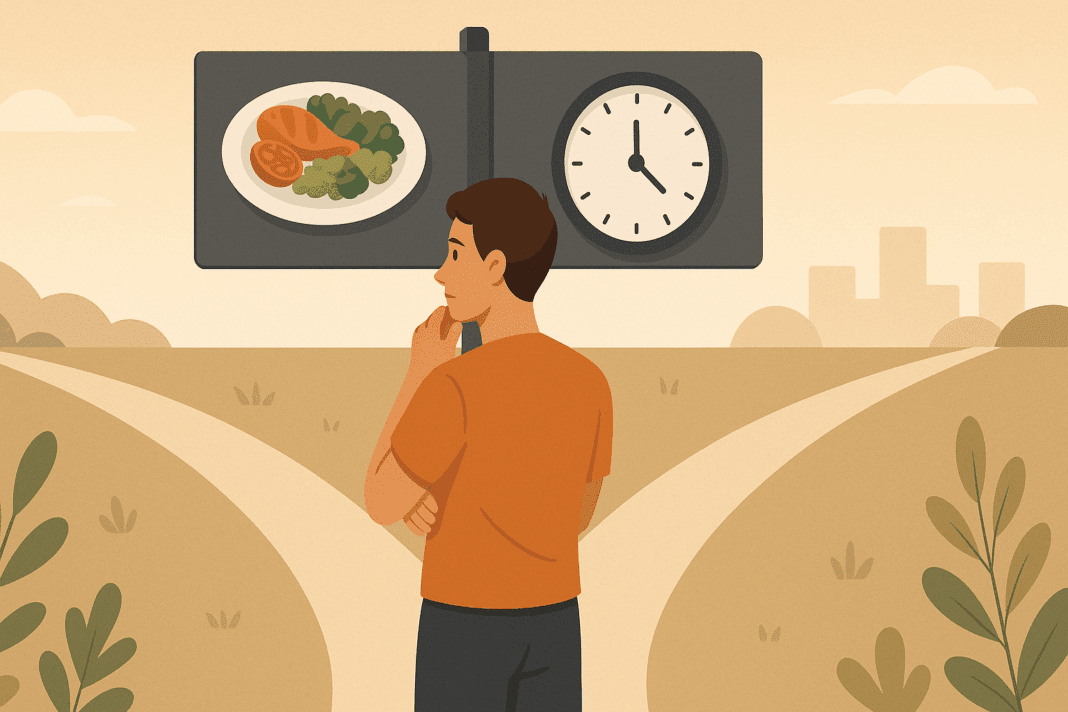In today’s fast-paced world, skipping meals might seem like a natural solution to shed unwanted pounds. Whether it’s skipping lunch to lose weight or opting out of dinner in hopes of slimming down faster, many people turn to meal skipping as a strategy for fat loss. But does skipping meals help lose weight, or could it actually backfire? The truth lies in a nuanced intersection of human physiology, nutritional science, and psychological behavior. This article dives deep into the science, weighing the pros and cons of skipping meals to lose weight while offering expert insights rooted in evidence-based research.
You may also like: What Do Body Builders Eat? Expert Tips on Smart Meals for Strength, Lean Mass, and a Healthier Lifestyle
The Appeal of Skipping Meals: A Shortcut to Weight Loss?
From busy professionals to social media influencers, many have embraced skipping lunch or dinner as part of their diet routines. It sounds straightforward: eat less, weigh less. The idea that reducing food intake by cutting out meals leads to automatic fat loss is tempting, especially for those seeking quick results. Indeed, some clinical trials support the notion that reduced caloric intake results in weight loss. However, the context matters immensely. Skipping meals to lose weight can trigger a cascade of physiological responses that may ultimately undermine long-term health and weight management goals.
Understanding the Metabolic Response to Meal Skipping
When a person consistently skips meals, especially without a structured eating plan, the body may initially respond by tapping into stored energy reserves. This is one reason intermittent fasting and time-restricted feeding have gained popularity. The metabolic benefits of these practices have shown promise in some studies. But skipping meals without a plan is not the same as following a scientifically structured fasting protocol. Unstructured meal skipping can lead to hormonal imbalances, including elevated cortisol levels, increased hunger hormones like ghrelin, and a reduction in satiety hormones like leptin. Over time, these changes may result in overeating later in the day, disrupting metabolic equilibrium and potentially leading to weight gain instead of loss.

Skipping Lunch vs. Skipping Dinner: Is One Better Than the Other?
The timing of meal skipping plays a critical role. Skipping lunch to lose weight, for instance, may have different effects compared to skipping dinner. Lunch often provides mid-day energy, fueling cognitive and physical performance during working hours. Missing it can lead to energy crashes, mood swings, and increased cravings later in the evening. In contrast, skipping dinner to lose weight might appear more beneficial, especially when practiced as part of an early time-restricted eating pattern. Some research suggests that eating earlier in the day aligns better with the body’s circadian rhythm, promoting improved insulin sensitivity and more efficient metabolism. Still, both approaches carry risks if not balanced with overall nutritional needs.
The Psychological Impact of Skipping Meals
From a psychological standpoint, skipping meals can create a problematic relationship with food. Hunger-induced irritability, anxiety, and binge-eating episodes are common side effects. People who regularly skip meals may also develop compensatory behaviors, such as overconsuming snacks or sugary foods later in the day. This can sabotage the original intent of losing weight through caloric restriction. Furthermore, skipping meals may increase food fixation, leading to obsessive thinking about eating, which is counterproductive to sustainable, mindful eating practices.

Does Skipping Meals Really Help Lose Weight in the Long Term?
While short-term weight loss may occur from skipping meals, long-term sustainability is questionable. Research consistently shows that consistent meal timing and nutrient-dense food choices are more reliable predictors of weight loss maintenance. The body thrives on regularity, and skipping meals can lead to erratic eating patterns, reduced muscle mass, and metabolic slowdown. These outcomes are contrary to the goal of sustainable fat loss. Moreover, missing meals can reduce dietary diversity, depriving the body of essential micronutrients that play a role in energy metabolism and satiety regulation.

Scientific Insights on Intermittent Fasting vs. Skipping Meals
It is important to distinguish between structured intermittent fasting and ad-hoc meal skipping. Intermittent fasting (IF) methods such as the 16:8 protocol or alternate-day fasting have been studied extensively. These regimens offer a clear framework, encouraging nutrient timing and controlled eating windows. When done properly, IF may support fat loss, reduce insulin resistance, and improve lipid profiles. However, simply skipping lunch or dinner without a consistent plan does not yield the same benefits. It often results in metabolic confusion and undermines the benefits associated with carefully designed dietary interventions.
Is It Bad Missing 2 Meals a Day?
Many people wonder: is it bad missing 2 meals every day? The answer depends on context. If missing meals is part of a planned intermittent fasting regimen, it may be safe for certain individuals under medical supervision. But regularly missing two meals without compensating with nutrient-rich foods during the remaining meal can result in nutritional deficiencies, muscle wasting, fatigue, and impaired cognitive performance. The body requires a spectrum of macronutrients and micronutrients throughout the day to function optimally. Restricting intake too severely by skipping multiple meals may do more harm than good in the long term.

The Role of Nutrient Timing and Meal Quality in Weight Loss
Meal quality matters as much as meal frequency. Replacing skipped meals with nutrient-poor choices like processed snacks or sugary drinks defeats the purpose of caloric reduction. Nutrient timing—consuming protein, fiber, and healthy fats at strategic times—can stabilize blood sugar and reduce hunger. This approach is especially critical for those considering skipping dinner or skipping lunch as part of a weight loss plan. A balanced, whole-food meal after a fasting period can support lean muscle maintenance, satiety, and metabolic function far more effectively than a low-nutrient substitute.
What Science Says About Skipping Meals to Lose Weight
A comprehensive review of clinical data reveals that while energy restriction does lead to weight loss, the method of restriction matters. Studies comparing intermittent fasting to continuous caloric restriction show similar weight loss outcomes, but intermittent fasting may offer additional metabolic benefits when practiced correctly. However, research also cautions that skipping meals inconsistently may increase the risk of insulin resistance, disordered eating patterns, and cardiovascular stress. The takeaway: skipping meals to lose weight might work for some, but it is not universally effective and must be approached with caution and structure.
How Skipping Meals Interacts with Low Carb and Keto Diets
Many individuals exploring weight loss also turn to low carb and keto-style eating. It’s worth exploring how skipping meals fits within this framework. The ketogenic diet, which prioritizes very low carbohydrate intake, naturally induces a fasting-like state known as ketosis. In this context, skipping a meal may feel easier because fat and ketone bodies provide steady energy. That said, understanding the difference between a s keto low carb approach and an unstructured meal skipping pattern is crucial. While a keto diet vs low carb diet approach can help with satiety and reduced hunger hormones, inconsistent skipping of meals may interfere with nutrient intake and undermine the benefits of a well-formulated low carb plan.
Distinguishing Between Ketogenic Diet vs Low Carb Strategies
While both low carb and ketogenic diets aim to reduce carbohydrate intake, they differ in execution and metabolic outcomes. A ketogenic diet restricts carbohydrates to very low levels (often under 50 grams per day) to induce ketosis, whereas a standard low carb diet may allow for more flexibility. Understanding the nuances of the low carb diet keto diet distinction is essential when combining these strategies with intermittent fasting or meal skipping. Is keto a low carb diet? Technically yes, but not all low carb diets are ketogenic. This distinction matters when determining whether skipping lunch or skipping dinner enhances or disrupts metabolic adaptation.
Is Keto a Good Diet for Those Skipping Meals?
Whether or not a keto diet is compatible with skipping meals depends on how well the body adapts to fat metabolism. Those in nutritional ketosis often report reduced hunger and stable energy, which may make it easier to skip meals without discomfort. Still, is keto a good diet for everyone trying to lose weight through meal skipping? Not necessarily. Keto can work well in a structured plan, but without careful attention to micronutrient intake and hydration, side effects such as fatigue, constipation, or electrolyte imbalances may arise. Skipping meals in this context can amplify those risks if not planned properly.
Is a Keto Diet Sustainable When Skipping Meals?
Sustainability is a critical consideration in any weight loss approach. Is a keto diet sustainable for those who also skip meals? That depends on individual metabolism, lifestyle, and long-term dietary adherence. Some people thrive on combining intermittent fasting with a s keto low carb lifestyle, finding it easier to reduce food frequency without experiencing hunger or energy dips. Others may struggle with nutrient monotony or social challenges. As with any diet, the sustainability of combining keto with skipping meals relies on consistency, enjoyment, and medical oversight.
Navigating Skipping Meals and Nutritional Adequacy
For those skipping meals to lose weight, ensuring nutritional adequacy is non-negotiable. A common mistake is neglecting essential vitamins and minerals when eating less frequently. Each meal skipped must be balanced by higher nutrient density in the meals consumed. This becomes especially important on a keto diet vs low carb diet, where food choices are already restricted. Strategic supplementation, whole food variety, and mindful portioning can bridge potential nutrient gaps and support overall well-being.
The Risks of Habitual Meal Skipping Without Strategy
Habitual meal skipping, when not accompanied by thoughtful planning, carries real risks. It can lead to nutrient deficiencies, digestive issues, hormonal imbalances, and unintended weight gain due to compensatory eating. Moreover, skipping meals as a reaction to guilt or as a punishment for overeating fosters an unhealthy relationship with food. Instead, a structured and mindful eating approach—one that may incorporate strategic fasting if appropriate—is a more sustainable path toward weight management.
When Skipping Meals Might Be Appropriate
There are scenarios where skipping meals might serve a purpose. Under medical guidance, individuals with specific metabolic conditions may benefit from time-restricted feeding. Athletes engaged in fasted training might skip breakfast strategically to improve fat oxidation. But in all cases, the key is intentionality, not randomness. Skipping meals without clarity of purpose or knowledge of consequences is rarely a wise strategy.
The Bottom Line: Should You Skip Meals for Weight Loss?
So, does skipping meals help lose weight? The answer is yes—but only under specific, controlled circumstances. Structured meal skipping, such as intermittent fasting, can be effective for weight loss, particularly when paired with a s keto low carb or whole-food-focused approach. However, skipping lunch or skipping dinner without a plan may backfire, leading to nutritional gaps, increased hunger, and metabolic stress. Context, quality, and consistency matter more than the mere absence of food. Whether exploring the keto diet vs low carb diet, or simply trying to reduce caloric intake, meal skipping should be a purposeful strategy rooted in science, not a haphazard habit.

Frequently Asked Questions: Skipping Meals and Weight Loss
1. Can skipping lunch to lose weight impact productivity and cognitive function during the day?
Yes, skipping lunch to lose weight can have unintended consequences on productivity, mental clarity, and mood. Lunchtime is often when our blood glucose levels drop naturally after the morning’s activity, and depriving the brain of fuel at this point can impair concentration and decision-making. Over time, consistently skipping lunch can lead to chronic low energy in the afternoon, potentially triggering overcompensation through unhealthy snacking or caffeine reliance. While some individuals may initially feel fine, research suggests that cognitive function is closely tied to nutrient availability, especially glucose and essential fatty acids. If you’re considering skipping lunch, it’s important to monitor your focus and energy levels closely, and if needed, incorporate small, nutrient-dense alternatives like smoothies or high-fiber snacks to bridge the gap without derailing your calorie goals.
2. Is it bad missing 2 meals a day if you compensate with one large, healthy dinner?
Whether or not it’s bad missing 2 meals depends on how the remaining meal is structured and how consistently this pattern is followed. While some people thrive on one-meal-a-day (OMAD) protocols, long-term adherence can be difficult, and nutrient gaps may emerge. Eating just once per day can also disrupt digestive rhythms, leading to bloating or discomfort due to high food volume in one sitting. Furthermore, missing two meals can contribute to hormonal changes such as elevated cortisol or disrupted ghrelin-leptin balance, increasing hunger and stress. If you’re experimenting with this model, it’s essential to ensure that the single meal covers a wide spectrum of micronutrients, includes adequate hydration, and fits within your body’s natural rhythm to avoid negative long-term effects.
3. Does skipping meals to lose weight affect muscle mass?
Skipping meals to lose weight, especially without adequate protein intake and strength training, can lead to muscle loss rather than fat reduction. When the body experiences a prolonged energy deficit, it may begin to metabolize muscle tissue to meet basic energy needs. This is especially true when protein intake is insufficient or when physical activity levels drop during a meal-skipping phase. Preserving muscle mass is crucial not only for appearance but also for metabolic health, as lean muscle contributes to resting energy expenditure. Individuals skipping meals should consider incorporating resistance exercise and prioritizing protein-rich foods during eating windows to minimize muscle degradation and optimize body composition outcomes.
4. Can skipping dinner to lose weight improve sleep quality or make it worse?
The effect of skipping dinner on sleep quality can vary dramatically between individuals. Some people report improved sleep due to lighter digestion and stabilized blood sugar, while others experience disrupted rest due to nighttime hunger or cortisol spikes. The timing and composition of your last meal play a crucial role; for example, skipping dinner after a high-carb lunch may lead to a rapid drop in blood sugar, triggering wakefulness during the night. Skipping dinner to lose weight may be more effective when your overall lifestyle supports early eating patterns and your sleep routine is well-regulated. To avoid adverse effects, consider experimenting with a light, protein- and fiber-rich meal earlier in the evening instead of skipping food altogether.
5. What are some social or psychological challenges of skipping meals long-term?
Long-term skipping meals can introduce several social and psychological barriers. Social gatherings often revolve around meals, so skipping lunch or dinner might isolate individuals or require uncomfortable explanations. Over time, this can reduce one’s enjoyment of food culture or increase anxiety around eating in public settings. Psychologically, repeated meal skipping may foster a restrictive mindset that can evolve into disordered eating habits or obsession with control. To mitigate these risks, people should aim for flexibility and transparency in their approach, balancing personal goals with social wellness. Emotional resilience, meal planning, and open conversations with friends or family can make skipping meals more sustainable in real-life contexts.
6. How does skipping lunch influence blood sugar stability throughout the day?
Skipping lunch often disrupts blood sugar stability, especially if breakfast was light or carb-heavy. Without a midday meal to buffer fluctuations, blood glucose may dip too low in the afternoon, resulting in irritability, fatigue, or brain fog. The body responds to this low by triggering counterregulatory hormones like cortisol and adrenaline, which may lead to increased cravings for sugary or starchy foods. This is why skipping lunch to lose weight may inadvertently lead to evening binge eating or reliance on fast energy sources. Choosing a balanced breakfast with protein, fat, and fiber can help maintain more consistent energy when skipping lunch is necessary, but it should not become the default strategy without close attention to symptoms.
7. Does skipping dinner promote better fat burning overnight?
Skipping dinner may enhance fat oxidation overnight for some individuals, especially when paired with physical activity earlier in the day. The idea is that without a large evening meal, insulin levels drop, which can signal the body to utilize fat stores for energy during sleep. However, the effect is highly individual and influenced by factors like overall calorie intake, exercise habits, and metabolic health. While skipping dinner to lose weight might align well with early time-restricted eating models, it’s essential to evaluate whether this pattern supports sustainable energy and emotional well-being. Not everyone adapts well to an empty stomach overnight, particularly if sleep quality or muscle recovery becomes compromised.
8. Can skipping meals contribute to nutrient deficiencies even if you’re eating whole foods?
Yes, skipping meals—even while consuming a whole-food diet—can still result in nutrient deficiencies if daily intake doesn’t meet your physiological needs. Key micronutrients like magnesium, iron, B vitamins, and omega-3 fatty acids are often under-consumed when fewer meals are eaten. Since each meal represents an opportunity to diversify nutrient intake, skipping meals to lose weight can narrow this window, especially when food choices are repetitive or overly restrictive. Over time, deficiencies may present as fatigue, poor skin health, or weakened immunity. To mitigate this, people who skip meals should consider nutrient-dense superfoods like chia seeds, leafy greens, lentils, and fortified plant-based milks, and may benefit from targeted supplementation under medical guidance.
9. Are there populations or lifestyles for whom skipping meals is particularly risky?
Certain groups should exercise extra caution when skipping meals, including adolescents, pregnant individuals, older adults, and people with metabolic conditions such as diabetes or hypoglycemia. For these populations, skipping lunch or skipping dinner can increase the risk of nutrient inadequacy, mood instability, and energy crashes. Individuals with high physical demands, such as shift workers or athletes, may also struggle with inconsistent energy and recovery when meals are skipped. While skipping meals to lose weight might seem appealing in these contexts, the health trade-offs often outweigh the benefits. A registered dietitian can help assess whether a modified eating window or meal size adjustment is a safer and more effective approach.
10. How can someone transition away from meal skipping if it no longer supports their health goals?
Transitioning away from skipping meals requires intentional reintroduction of food in a way that supports both metabolic and psychological balance. Start by adding one small, balanced meal or snack at the time previously skipped—this could be a protein smoothie mid-morning or a vegetable-based soup in the evening. It’s essential to monitor hunger cues and avoid guilt associated with eating more frequently, especially if skipping meals has been tied to body image goals. Gradually increasing meal frequency can also help stabilize hormones, boost energy, and reestablish a healthy relationship with food. For those who have been skipping dinner or skipping lunch to lose weight, a shift toward mindful eating and nutrient timing can yield better long-term results than restrictive patterns that are no longer serving their intended purpose.

Key Takeaways: Rethinking Skipping Meals for Sustainable Fat Loss
While it may seem intuitive that eating less leads to weighing less, the human body responds to caloric restriction in complex and sometimes counterproductive ways. Skipping meals to lose weight can work for some, particularly when aligned with structured eating plans like intermittent fasting or a ketogenic diet. However, questions like “is it bad missing 2 meals?” must be evaluated through a scientific lens. Skipping lunch or dinner may disrupt metabolic rhythms or induce overeating if not carefully managed. Ultimately, sustainable weight loss comes from consistency, mindful eating, nutritional adequacy, and personalized strategy. Rather than simply asking if skipping meals helps lose weight, a better question might be: how can I nourish my body in a way that supports both health and long-term fat loss?
Was this article helpful? Don’t let it stop with you. Share it right now with someone who needs to see it—whether it’s a friend, a colleague, or your whole network. And if staying ahead on this topic matters to you, subscribe to this publication for the most up-to-date information. You’ll get the latest insights delivered straight to you—no searching, no missing out.
Further Reading:
Why you shouldn’t skip meals to lose weight
The effects of skipping a meal on daily energy intake and diet quality

